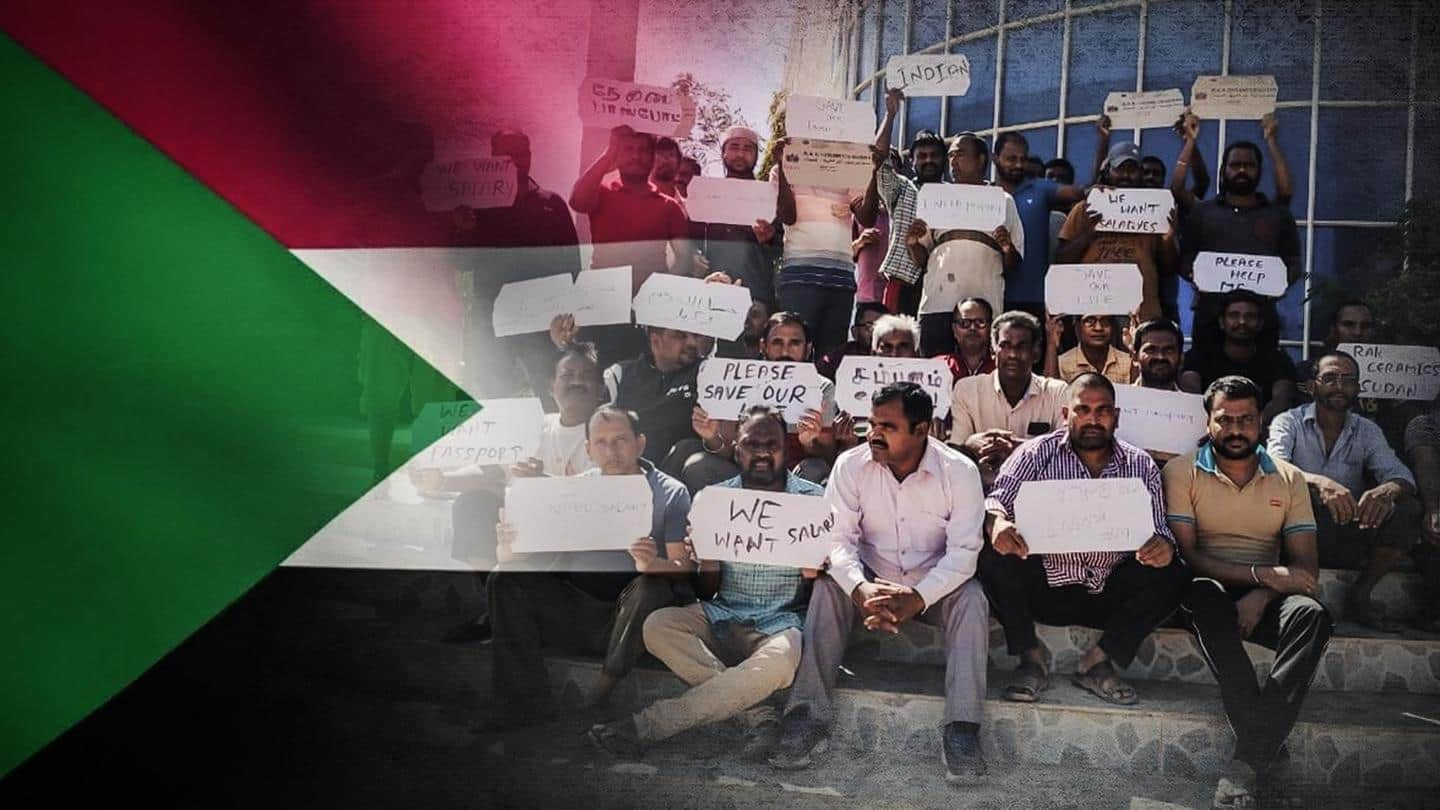
62 Indians stranded in Sudan; desperate to return amid chaos
What's the story
Sixty-two Indian nationals are stranded in Sudan with their passports withheld and finances quickly drying up.
They work for Nobles Group, a major ceramic tile manufacturer in Sudan.
They have been denied salary for over a year and have no other sources of income.
Their mental and physical health has degraded, too, due to the lack of proper food and uncertainty of their return.
Context
Why does it matter?
After the October military coup in Sudan, Muhammad Al-Mamoun—Nobles Group's owner—fled to the Middle East.
Notably, there were four successful military coups across Africa this year.
Observers say a number of external factors have contributed to the recent increase in militarization of politics.
A study revealed the average number of coups and coup attempts per year in Africa, between 1960 and 2000, was four.
Details
What is the situation of the Indians now?
"I haven't gotten my salary for one year and they don't give us proper food," said Maruthi Ram Dandapani, an Indian employee at Nobles Group's Almasa Porcelain Factory.
Meanwhile, for nearly a year, 41 Indians working at the group's RAK Ceramics factory have gone without pay.
Their passports were also withheld, citing company policy, barring them from leaving Sudan, employees told The Indian Express.
Quote
'No other source of income'
"Just when they said they were going to pay us, the coup happened and the manager said the government seized the property," said Raju Shetty, who arrived in Sudan eight months ago.
As the companies stopped paying the workers, their families have also been financial difficulties at home.
"This salary pays for everything. I don't have any other source of income," said Shetty.
Details
What did the Indian embassy in Sudan do?
The stranded employees desperately visited the Indian embassy in Khartoum a few weeks ago, demanding their passports be returned.
"They are saying it will happen but we don't know what they are doing," said Upendra Pandey, an employee.
Employees stated the Indian embassy has provided them 100,000 Sudanese pounds until a more permanent solution could be found.
Information
An Indian supervisor misled the workers
Accusing their supervisor, Srinivas Rao, of misleading them, Virendra Pratap Varma said, "The supervisor made us work without pay for months, saying...we would eventually get paid. The (embassy) officials told him that he should have made sure we got paid."
When the supervisor and employees got into a dispute about the difficulties they were facing, he even threatened to leave them stranded in Sudan.
Quote
'The embassy will do something'
"The embassy also told us to keep watch so...he (supervisor) doesn't run away," said Varma. He added the embassy is concerned about how the employees would continue to live there if Rao leaves. "Now we just believe that the embassy will do something," Varma said.
Information
The visas of the workers are also expiring
Also, Shetty pointed out the visas of the workers are valid for two months.
Sudan forces workers to pay fines for each day they overstay their visas whenever they leave the country.
"Immigration asks you to pay those fines and only then they will let us go. How do we exit the country?" Shetty said.
"Who will give us so much money?" asked Pandey.
Military coup
What happened in the October-November 2021 Sudanese coup d'état?
On October 25, 2021, the Sudanese army—led by General Abdel Fattah al-Burhan—had seized control of the government in a coup.
Initially, at least five top government officials were held.
Protests against the coup began on October 25. Ten citizens were reportedly killed and over 140 others were injured as the military opened fire on protesters.
Later, 15 protesters were shot dead on November 15.